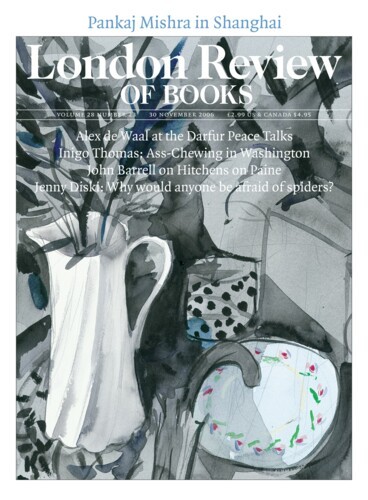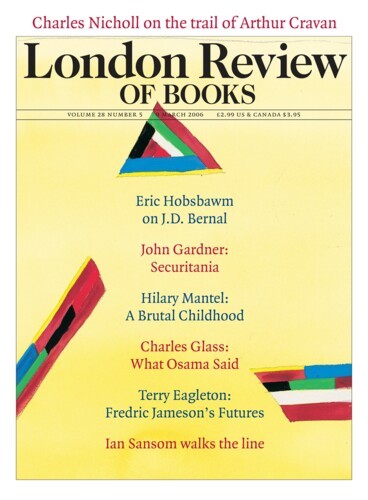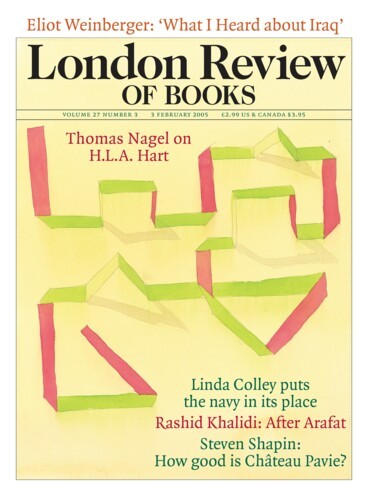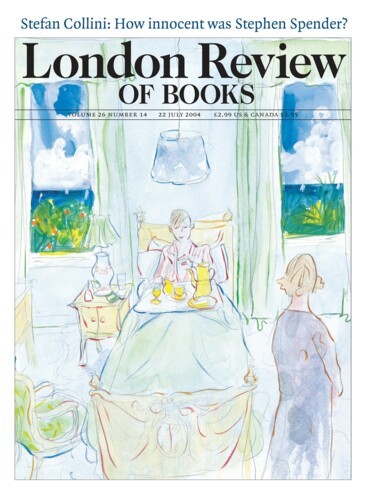David Wootton
David Wootton’s Bad Medicine: Doctors Doing Harm since Hippocrates will be published by Oxford in June. He teaches early modern history at the University of York, where he is an Anniversary Professor.
Devils Everywhere: The Terrors of the Night
David Wootton, 9 March 2006
As a small child, I was afraid of the dark, or rather of the monsters that entered my bedroom under cover of darkness. As an adult, I feel safe in my bed, and, until recently, I was never in true darkness except when in bed. But I have been reacquainting myself with the dark: I have become a weekly commuter, and spend part of each week on a narrow-boat. In winter, when the sky is cloudy, I...
The road is still open: Turpin Hero?
David Wootton, 3 February 2005
“Turpin’s ride to York is not just about immortality and liberty; it also, obviously, has to do with speed: ‘The torrent leaping from the crag – the bolt from the bow – the air-cleaving eagle – thoughts themselves are scarce more winged in their flight.’ Black Bess flies along at twenty miles an hour. Turpin is enraptured, maddened, furious, intoxicated by speed . . . Harrison Ainsworth’s achievement in Rookwood was to knit together past and future, to imagine, at a time when the stagecoach took four days to get from York (with a 5 a.m. start) to London, what it would be like to make the journey at railroad speeds. His readers wanted to believe in Black Bess because they wanted to halt the pace of change around them, to think of speed as animal not mechanical. Rookwood is the first, reluctant novel of the steam age.”
Where are Gracie and Rosie?
22 July 2004
Separating Gracie and Rosie: Two people, one body
David Wootton, 22 July 2004
“It is a basic truth that no one is ‘normal’; to be normal is simply to pass for normal. Each of us has had several genetic or other abnormalities. But if the thought of abnormality alarms us so, it is because every normal Dr Jekyll is conjoined with a monstrous Mr Hyde that he is reluctant for others to meet. If we could bear to acknowledge something of this psychological complexity we might find the bodies of conjoined twins less shocking . . . we might place less value on the ‘bodily integrity’ that Lord Justice Walker wanted to restore to Rosie Attard even at the cost of her life.”
Pieces about David Wootton in the LRB
Such Matters as the Soul: ‘The Invention of Science’
Dmitri Levitin, 22 September 2016
On 11 February, David Reitze, executive director of the Laser Interferometer Gravitational-Wave Observatory (Ligo) in the US, announced that his team of almost a thousand scientists had...
The Strangest Piece of News: Galileo
Nick Wilding, 2 June 2011
In the winter of 1609-10, Galileo Galilei made a series of astronomical observations that added to the growing list of anomalies threatening the stability of the earth-centred Ptolemaic cosmos....
Possessed by the Idols: Does Medicine Work?
Steven Shapin, 30 November 2006
Historical progress is back, even if it was only in some genres of academic history that it ever went away. It’s been some time, certainly, since historians of art saw painting as a...
Read anywhere with the London Review of Books app, available now from the App Store for Apple devices, Google Play for Android devices and Amazon for your Kindle Fire.
Sign up to our newsletter
For highlights from the latest issue, our archive and the blog, as well as news, events and exclusive promotions.




